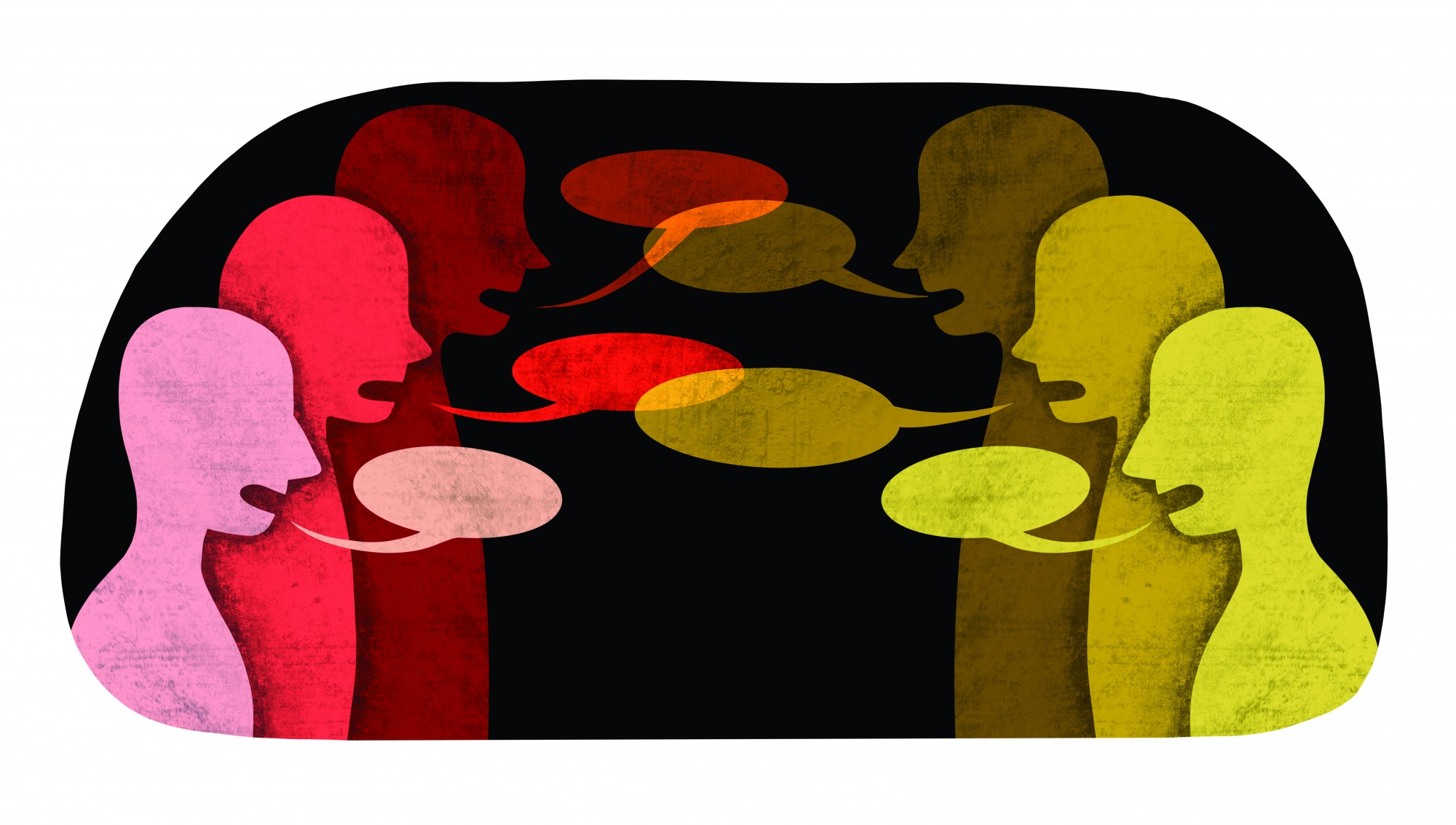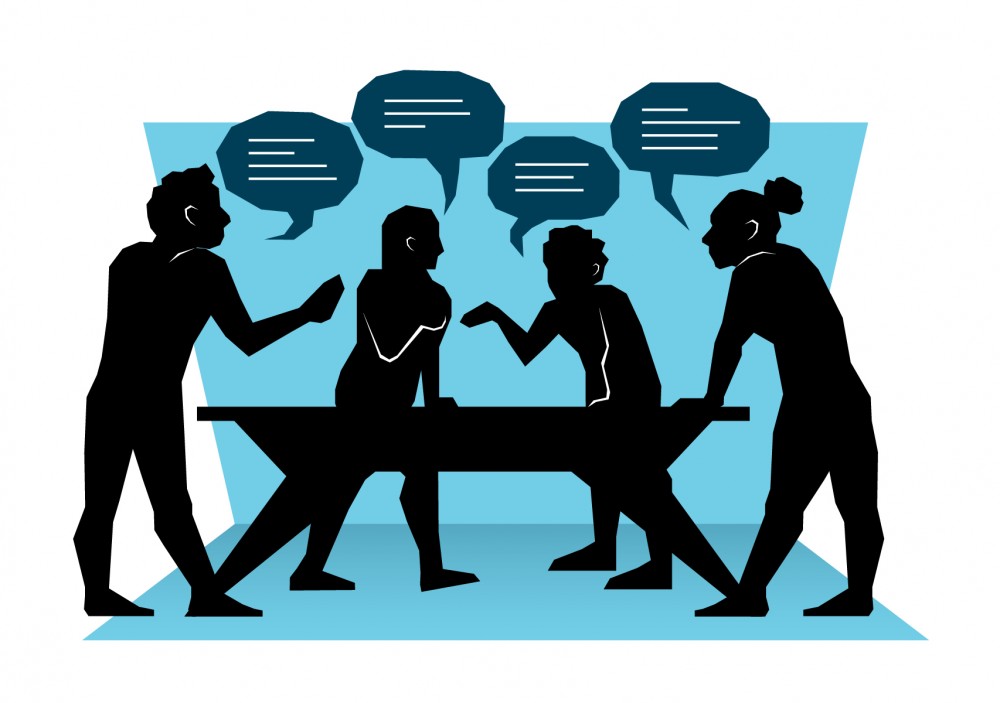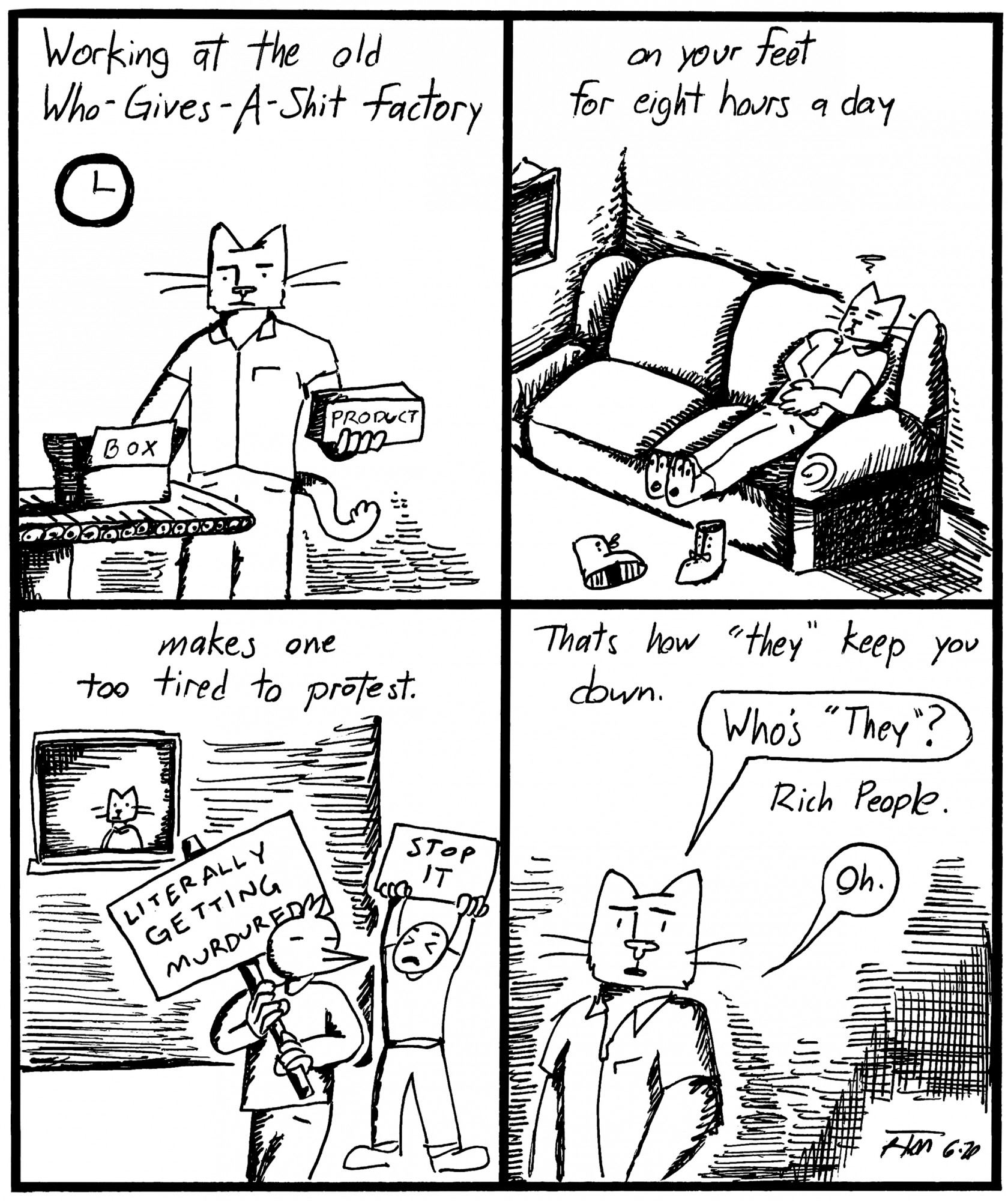It’s the moment that everyone dreads. Silence encompasses those around you and blankets the group in tension. Others at the party can sense that your conversation has gone awry. Someone has brought up politics, and people are quick to change topics once the name ‘Trump’ has been mentioned. You aren’t sure how the strangers you’re talking to voted in the 2016 election — and you’re really not sure if you want to know.
According to some polls, more than 10% of people have ended friendships over political differences. Though ending friendships as a result of political disagreements may be becoming more frequent, it’s unclear whether it’s any less taboo. However, as polarized politics become a more prominent conversation topic, it is harder to avoid speaking about what’s happening in the world without identifying people in an “us vs. them” mentality.
The foundation of friendships vary widely but are often from comparable morals and ideas, or from similar experiences or environments. It makes sense that people would choose friends with a similar political ideology, because political identification is deeply rooted in morals and ethics.
Having the ability to choose friendship over politics is often a symptom of privilege. If you’re able to disregard someone else’s politics, some of which may work to limit the rights of others, it’s probably because your rights aren’t the ones being threatened or voted on in the first place. Asking others to bench their fight for civil rights or equality in the name of civil friendship isn’t fair.
It is an unfortunate truth for some, but ignoring or simply refusing to talk about politics with your friends is a privilege only those in positions of power can afford. If you’re able to put aside that your friend is voting for politicians who actively limit the rights of certain groups, those certain groups don’t have that same luxury. For them, maintaining peace means staying quiet on stances that impact their civil liberties. It is your right to stay friends with a person who holds such views but advising others to do the same ignores that it simply may not be on the table for them.
To say that “politics are never worth losing a friendship over” can imply that certain rights, which have been deemed political issues, are trivial and open for debate. There can still be civility in conversations surrounding politics, but that doesn’t always mean that a friendship will (or has to) survive the consequences of differing ideologies. Asking people to choose friendship over values is asking them to tuck those values away and lock up a part of who they are.
There are a lot of gray areas when it comes to interacting with those around you who have strong opinions different from your own. There is no universal advice or one-size-fits-all solution that can fix the problems that may arise. Sometimes civil conversations over the phone or arguments during Thanksgiving dinner don’t ease tensions; they sometimes only exacerbate them.
However you choose to interact in any given relationship, it’s important to remember the phrase, “It’s important to make cost comparisons.” Do you and your friends or loved ones share common beliefs save for one polarizing topic? Do both sides of a debate surrounding a topic stem from shared morals? You may find some friendships worth preserving, whereas others may threaten the values — and communities — you hold dear.
At that point, you must ask yourself a difficult but pertinent question: Exactly how much wiggle room is there in your values?










